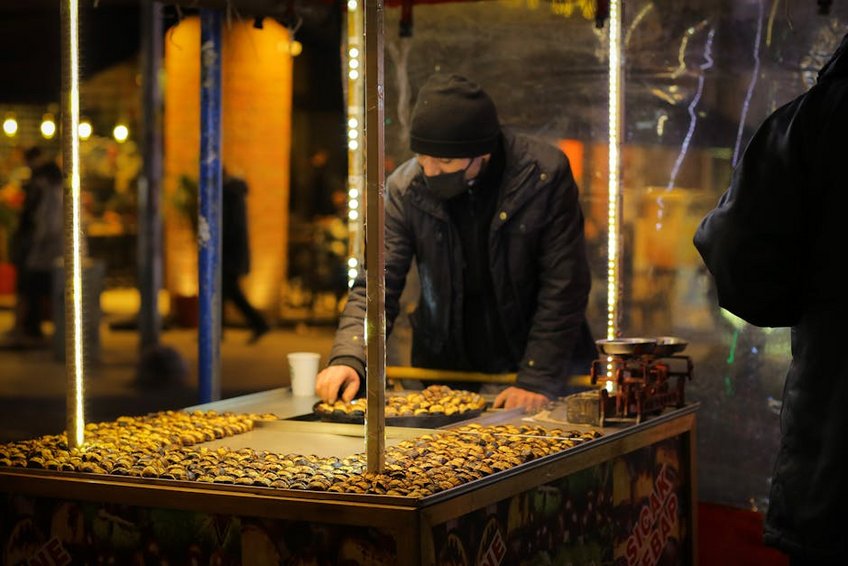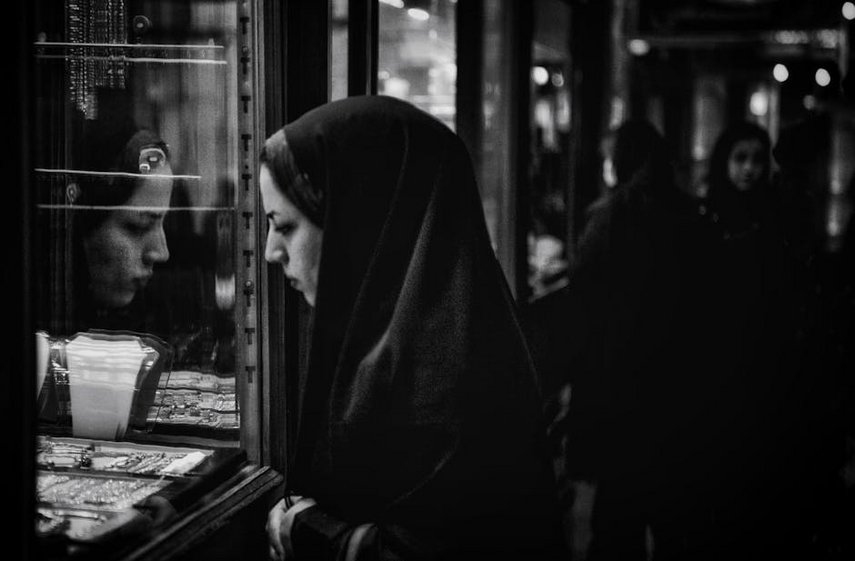Night Shopping in Middle Eastern Bazaars
Night shopping in Middle Eastern bazaars offers an unforgettable sensory journey that transforms ordinary shopping into a magical cultural experience. As the sun sets and temperatures drop, these ancient marketplaces come alive with vibrant energy, aromatic spices, colorful lanterns, and the melodic sounds of merchants and musicians. You’ll discover everything from hand-woven carpets and intricate metalwork to fragrant perfumes and delicious street food, all under the enchanting glow of traditional lighting. This after-dark shopping adventure allows you to experience authentic local culture while escaping the daytime heat, creating memories that will last long after your trip ends. Whether you’re bargaining for souvenirs, sampling local delicacies, or simply soaking in the atmosphere, night shopping in Middle Eastern bazaars provides a unique window into the heart of these fascinating destinations.
Night Shopping in Middle Eastern Bazaars – Essential Information
Understanding the basics of Middle Eastern night markets will significantly enhance your shopping experience. These bazaars, also known as souks, have operated for centuries as vital commercial and social hubs where locals and travelers mingle amidst labyrinthine alleyways. The night shopping tradition stems from practical considerations – avoiding the intense daytime heat while creating a festive atmosphere that transforms commerce into entertainment. You’ll find that prices often become more negotiable as evening progresses, with merchants eager to make final sales before closing. The experience varies by region, from the massive Grand Bazaar in Istanbul to the more intimate markets of Marrakech, but all share common elements of hospitality, tradition, and vibrant sensory stimulation that make night shopping in Middle Eastern bazaars truly special.
What Makes Night Bazaars Unique
- The cooling evening temperatures create comfortable shopping conditions compared to scorching daytime heat
- Traditional lighting including lanterns, fairy lights, and elaborate chandeliers creates magical atmospheres
- Extended social hours allow for leisurely shopping combined with dining and entertainment experiences
- Increased bargaining opportunities as merchants become more motivated to make final sales
- Cultural performances often accompany shopping, including traditional music and dance
- Budget travelers should allocate $30-50 for souvenirs, street food, and transportation for a comprehensive night market experience
- Mid-range shoppers might budget $75-150 for quality handicrafts, sit-down meals, and taxi transportation
- Luxury shopping experiences can reach $300+ for premium items like Persian carpets, gold jewelry, or antique pieces
- Middle East Tourism Board Official Guide
- Lonely Planet Middle East Travel Guide
Key Cultural Considerations
When engaging in night shopping in Middle Eastern bazaars, understanding local customs will greatly improve your experience. Dress modestly even during evening hours, covering shoulders and knees as a sign of respect. Bargaining is expected and considered part of the cultural exchange, but always maintain polite and friendly interactions. Friday evenings typically see reduced hours or closures for religious observances in many Muslim-majority countries. Be prepared for cash-based transactions, though larger establishments may accept credit cards. Remember that hospitality often includes offers of tea or coffee – accepting these gestures can lead to better prices and more enjoyable interactions with shopkeepers.

Night Shopping in Middle Eastern Bazaars – Planning Your Trip
Proper planning ensures you make the most of your night shopping experience in Middle Eastern markets. Research specific bazaar opening hours, as these can vary significantly by location, day of the week, and religious holidays. The best approach involves arriving just before sunset to witness the magical transformation from daytime market to illuminated night bazaar. Create a rough budget beforehand, accounting for souvenirs, dining, transportation, and unexpected finds. Learn basic bargaining phrases in the local language – even simple greetings and numbers can dramatically improve your shopping experience. Consider joining a guided night market tour for your first visit to gain confidence before exploring independently. Always have a meeting point established if shopping with companions, as these crowded markets can easily separate groups.
Best Time to Visit Middle Eastern Night Bazaars
The ideal time for night shopping in Middle Eastern bazaars depends on both seasonal factors and daily timing. October through April offers the most pleasant weather conditions, with cooler evenings perfect for extended market exploration. Summer months can still be enjoyable despite daytime heat, as evenings provide relief. Ramadan presents a unique opportunity to experience special night markets and festive atmospheres, though hours may adjust for fasting schedules. For daily timing, arrive around one hour before sunset to secure parking or transportation, witness the lighting ceremony, and have first selection of merchandise before crowds peak between 8-10 PM. Friday and Saturday nights typically see the largest crowds and most vibrant atmospheres.
Budget Planning and Costs
Essential Preparation Checklist
Prepare for your night shopping adventure with these essential items: comfortable walking shoes with good support for navigating uneven surfaces, a cross-body bag or money belt for security, small denomination local currency for easier bargaining, a reusable shopping bag for your purchases, a portable phone charger for navigation and photos, and a bottle of water to stay hydrated. Dress in layers as temperatures can drop significantly after sunset. Download offline maps of the bazaar area since narrow alleyways often lack reliable signal. Research typical prices for items you’re interested in to avoid overpaying, and consider bringing a small flashlight for examining merchandise details in dimly lit stalls.
Night Shopping in Middle Eastern Bazaars – Top Attractions and Activities
The magic of night shopping in Middle Eastern bazaars extends far beyond mere purchasing opportunities. These vibrant marketplaces serve as cultural centers where shopping, dining, entertainment, and socializing blend seamlessly. You’ll discover stunning architectural elements like vaulted ceilings, intricate tile work, and historic fountains illuminated against the night sky. The aromas of exotic spices, perfumes, and grilling meats create an unforgettable sensory backdrop to your shopping experience. Many bazaars feature traditional coffee houses where you can take breaks while watching artisans demonstrate ancient crafts like metalworking, leather dying, or carpet weaving. Cultural performances often spontaneously emerge, from storytellers captivating audiences to musicians playing traditional instruments, making each night shopping experience uniquely memorable.
Must-See Highlights
Certain experiences define night shopping in Middle Eastern bazaars and shouldn’t be missed. The lighting ceremony as thousands of lanterns and lights gradually illuminate the market creates a truly magical atmosphere. Visit spice markets where vibrant mounds of saffron, cumin, and other exotic spices create colorful displays and aromatic clouds. Explore the jewelry quarters where gold and silver glitter under specialized lighting, with craftsmen often working onsite. Don’t miss the textile sections featuring luxurious fabrics, traditional clothing, and magnificent carpets. The food courts and street food stalls offer incredible diversity, from sizzling kebabs to sweet pastries. Finally, find the traditional tea houses where you can rest while enjoying mint tea and people-watching as the market buzzes around you.
Hidden Gems and Local Favorites
Beyond the main thoroughfares, night shopping in Middle Eastern bazaars reveals hidden treasures known mainly to locals. Seek out small courtyards where families gather for evening socializing, often with food vendors serving regional specialties not found in tourist areas. Discover artisan workshops tucked away in narrow alleys, where you can watch masters creating pottery, metalwork, or leather goods using traditional methods. Look for specialty sections like antique dealers, book markets, or traditional medicine stalls offering unique shopping opportunities. Many bazaars contain small mosques or religious sites that take on special significance during evening hours. Local musicians often perform in quieter corners, creating intimate musical experiences away from the main crowds.
Night Shopping in Middle Eastern Bazaars – Practical Travel Information
Navigating the practical aspects of night shopping in Middle Eastern bazaars requires some advance preparation. Transportation to and from markets can challenge visitors, as parking is often limited and public transportation may have reduced evening schedules. Ride-sharing services like Uber or Careem operate in most major cities and provide convenient access. Within the bazaars, prepare for crowded conditions and complex layouts that can easily disorient visitors. Currency exchange facilities may be limited during evening hours, so obtain local cash beforehand. While many vendors speak basic English, having translation apps ready can help with more complex negotiations. Safety generally isn’t a major concern in these well-patrolled market areas, but standard precautions against pickpockets in crowded spaces apply.
| Transportation Method | Advantages/Considerations | Approximate Cost (USD) |
|---|---|---|
| Taxi/Ride-share | Direct to entrance, available until late | $5-15 from city centers |
| Public Transit | Inexpensive, but check return schedules | $1-3 per journey |
| Walking | Possible if staying nearby, well-lit paths | Free |
| Organized Tour | Includes guide, transportation, sometimes dinner | $40-80 per person |


